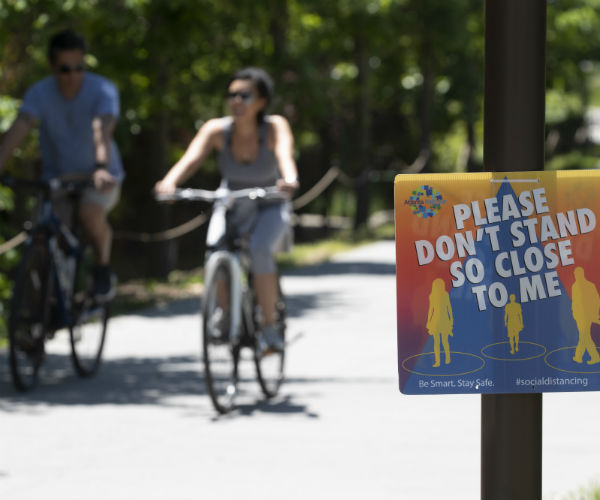Why you’re probably not so great at risk assessment
By Lynn Allison From Newsmax

As America continues to battle the pandemic, some people are following strict guidelines to protect themselves against the coronavirus while others seem more willing to take risks now that states are at various stages of reopening. The reason why we differ is because, as humans, we are not very good at assessing our personal risk, explains a leading psychologist.
According to the The New York Times, Marie Helweg-Larsen, a professor of psychology at Dickinson College, believes that many psychological factors skew our perception on how vulnerable we actually are.
The first is “optimistic bias.” Helweg-Larsen says that this is a “very, very basic and well-established principle in social psychology.” People think that bad things won’t happen to them so they take unnecessary risks.
Next is a “false sense of control.” The expert tells the Times that people think that if they wear masks and wash their hands frequently, that gives them a sense of protection against the virus while ignoring that social distancing is still a key factor in preventing transmission.
Mixed messages also hinder valid risk assessment. Helweg-Larson says that, especially during this pandemic, there are many public health experts and elected officials in disagreement over protocol so it’s difficult to sort out real risk factors.
We also try to validate our risks by seeking confirmation, she says. For example, people who want to take a chance on going out for dinner will search for information that confirms it’s safe to eat outside, and ignore warnings on the dangers.
Finally, as we live with the pandemic, we get used to the “new normal,” and this exposure therapy makes us less afraid. As one psychologist said, according to the Times, “If you were afraid of dogs but had to work in a puppy store, eventually, you’re going to get used to it.”
According to The Mercury News, we can’t stay isolated and fearful forever. Our social lives must be carefully built around risk reduction and that’s a personal decision.
“We need to balance our needs with what we know about coronavirus,” said Stanford University communications professor Jeff Hancock. “Abstinence doesn’t work. Plans that are practical and recognize basic human needs will be more successful than those plans that don’t. Do we need to take a vacation in Costa Rica with lots of friends? No. Do we need intimate and social moments. Yes.”
Helweg-Larsen urges all of us to think twice about whether the reward for our actions is worth the risk.
© 2020 NewsmaxHealth. All rights reserved.
For more on this story go to; https://www.newsmax.com/health/health-news/covid-19-risks-social-distancing-risk-assessment/2020/07/07/id/976068/?ns_mail_uid=6952f1f9-507d-4a20-8cc0-0a1db158d76e&ns_mail_job=DM127251_07132020&s=acs&dkt_nbr=010102h35493





